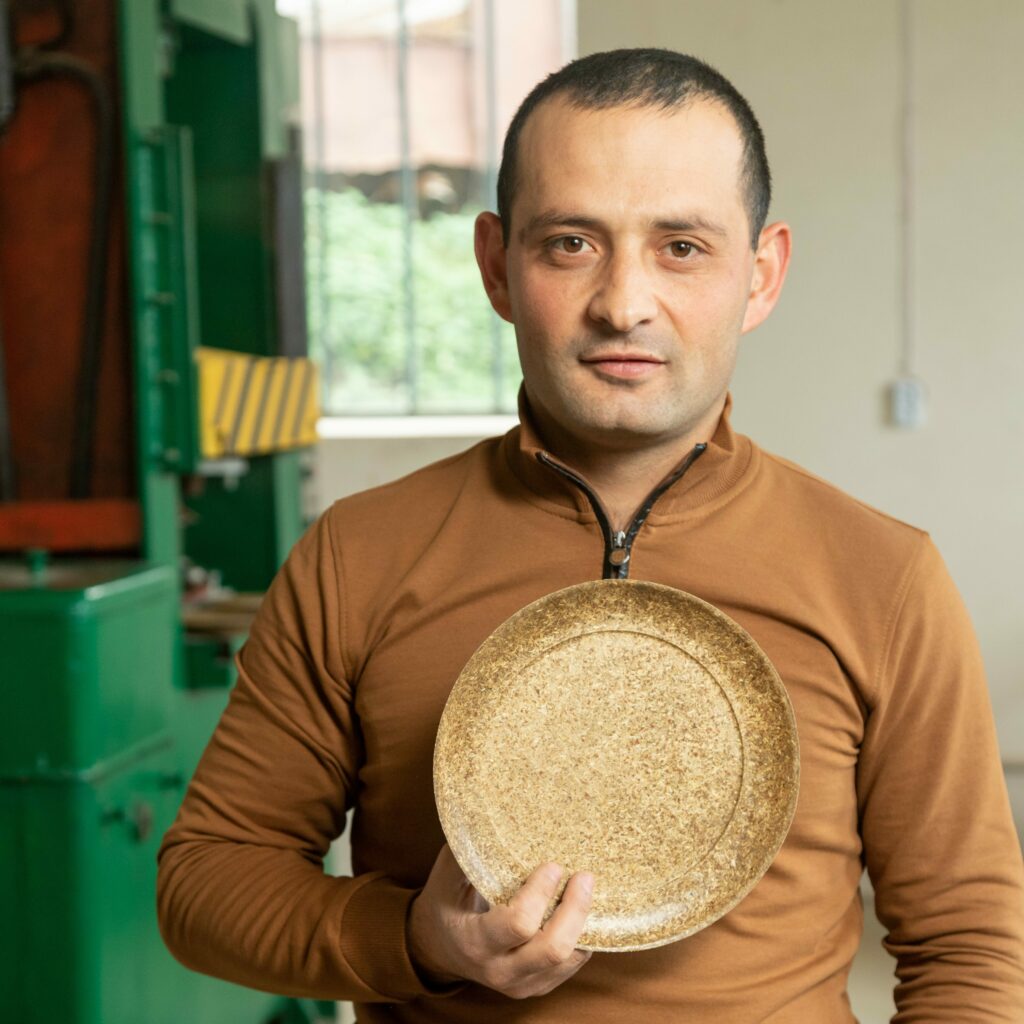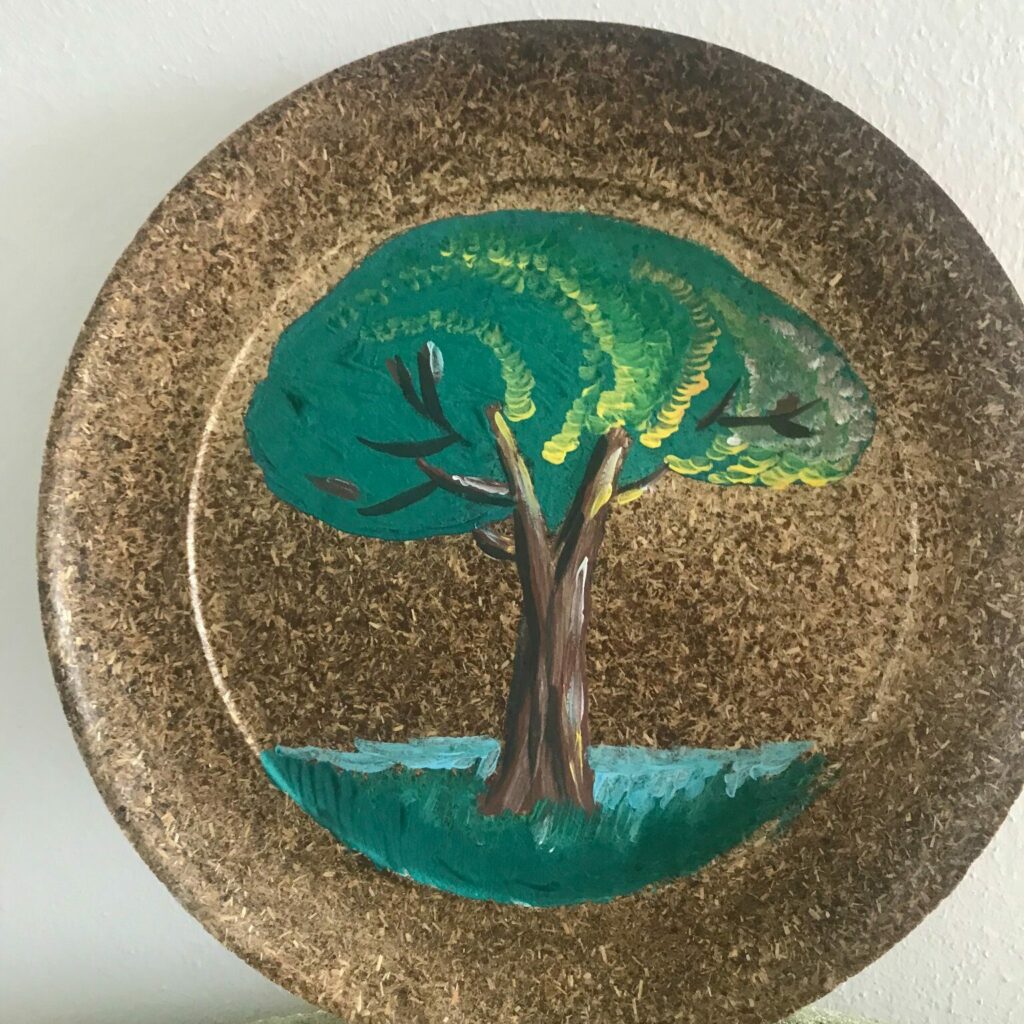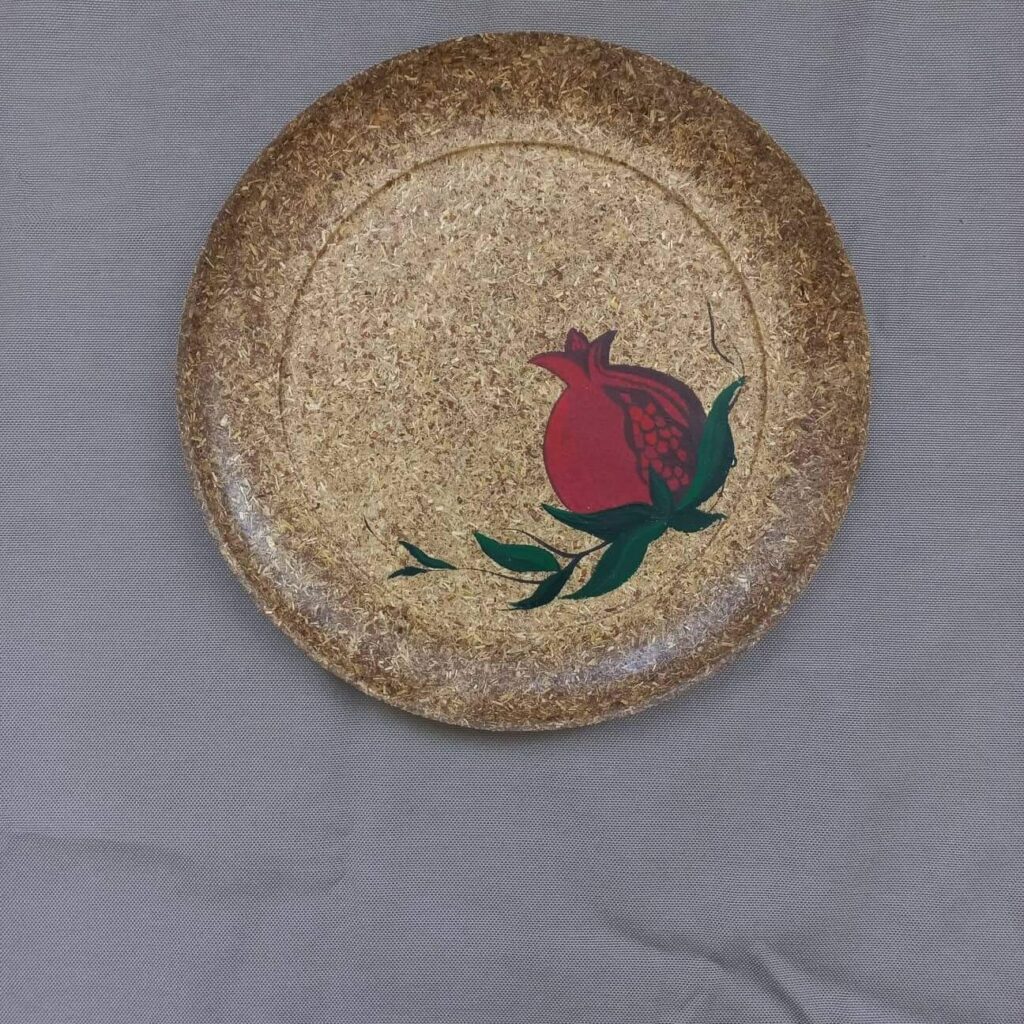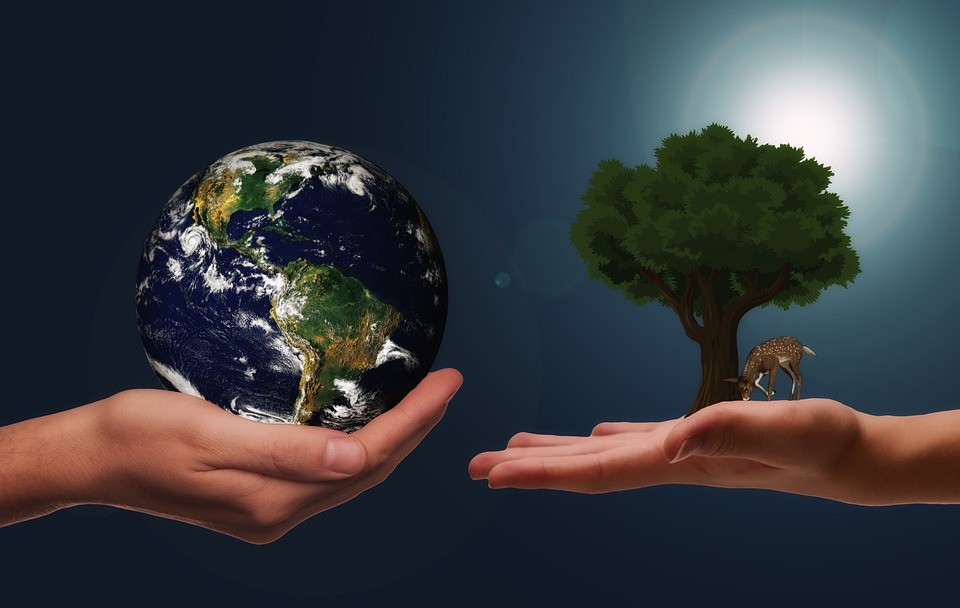It is a story about how a younger man, dwelling in a distant village in Armenia and anxious concerning the atmosphere, established a enterprise producing eco-plates from grain husks and stalks, with the help of the European Union’s EU4Youth programme.
Thirty-year-old Tigran Tchyughuryan was born and raised in Artsvaberd (a village in Tavush Province, within the northeast of Armenia). Tigran’s dad and mom are lecturers by career, however they’ve at all times been engaged in agriculture to supply contemporary meals to their kids. Along with offering them with pure merchandise, the Tchyughuryans additionally paid particular consideration to eco schooling: “Love and take care of nature is a way of life in our household,” Tigran explains. Rising up in such an atmosphere made the sons involved about what to do with the dried stalks of wheat after the harvest yearly; they didn’t wish to burn them, damaging the soil and polluting nature.
In 2020, after they had saved the wheat, it was time to wash the stays of the fields. Tigran’s center brother, Aram, who’s at all times on the lookout for options to environmental issues proposed an attention-grabbing concept to his brothers: to offer a second life to the straw and make eco-plates.

“We grind the remainder of the dry wheat, then with the assistance of a hydraulic press, underneath excessive stress and temperatures, get environmentally pleasant, disposable eco-plates from particular moulds,” Tigran explains.
How EU4Youth helps social entrepreneurs
Within the spring of 2020, the Inexperienced Lane NGO, with the help of the European Union, introduced a grant competitors for social improvements within the Caucasus as a part of the EU4Youth: Social Entrepreneurship Ecosystem Improvement (SEED) for Inexperienced Development challenge.
The challenge is carried out by CENN in partnership with the Kakheti Regional Improvement Basis (KRDF) in Georgia and the Inexperienced Lane NGO in Armenia. Its goal is to find and develop the entrepreneurial potential of younger folks within the South Caucasus area by social entrepreneurship and inexperienced innovation.
The purpose of the Inexperienced Lane NGO is the event of sustainable agriculture and rural settlements of Armenia. Its mission is to assist farmers enhance agricultural manufacturing and make it sustainable by offering the shopper with wholesome and protected meals.
Tigran discovered concerning the EU4Youth SEED challenge from its Fb web page and determined to use along with his brothers. The programme’s skilled workforce selling inexperienced tasks instantly permitted their concept and invited Tigran to take part within the GREENcubator acceleration programme. On account of the two-week course, he was granted the chance to work on a marketing strategy for his concept and to submit it for closing analysis and financing.

“Other than the monetary help, the skilled help of the challenge was tangible as effectively. The business-related data and networking gained from the programs proceed to assist develop our social enterprise even now,” says Tigran.
On the subsequent stage, the programme’s analysis committee unanimously and with out hesitation recognised the Tchyughuryan brothers’ concept as one of many winners, offering them with AMD 4.6 million to show the concept right into a enterprise. The programme’s help didn’t finish there: Tigran additionally discovered learn how to develop a advertising and marketing technique, create a model and set up a social enterprise.
With the financing in place to develop this unbelievable concept, the younger entrepreneur returned to his native Artsvaberd, studied the manufacturing course of and know-how behind eco-plates in additional element, repaired the constructing adjoining to his home, acquired tools and opened a workshop.
Early makes an attempt had been each encouraging and discouraging, however by trial and error and by enhancing the know-how, sooner or later the dried, brittle wheat grew to become a inflexible eco-plate.
Tigran remembers the second after they lastly obtained it proper: “After dozens of makes an attempt, after we managed to make the primary eco-plate, my brother began to hug me, not letting me go, and joking ‘That is our first product, our little one!’”
The shock and delight of these round them was motivating for the brothers. Excited by their success, after presenting their first merchandise to their mates and kin, they determined to carry them to exhibitions and markets. They quickly obtained their first bulk order.

“One man got here up and puzzled what the plates had been manufactured from,” Tigran remembers. “After we offered the challenge, he requested us for 100 plates, and we stated that, after our different gross sales, we didn’t have sufficient inventory left. However we informed him that it might be prepared in just a few hours and returned dwelling to shortly make them. Once I introduced him the order, I requested the person why he had purchased so many, and he stated that he lived overseas, so needed to take them and provides them as items to his mates, so they may study these plates made by his compatriots.”
As a way to emphasise the inexperienced idea within the product, the corporate was named GreenDish. This progressive enterprise created in a distant area of Armenia is more and more gaining recognition and increasing its manufacturing, processing not solely their very own wheat but in addition the stays of the fields of their fellow villagers.
“From the start, we determined to create an organization which might unfold inexperienced concepts; that is our imaginative and prescient,” says Tigran, explaining that manufacturing is predicated on the mannequin of the round economic system, with the standard ‘uncooked materials – product – waste’ chain changed by a ‘uncooked materials – product – uncooked materials’ chain. In different phrases, the used eco plates can turn into fodder, create added worth for agriculture and, furthermore, fertilise the soil.
“We produce absolutely biodegradable ecological dishes which substitute plastic and don’t hurt nature,” Tigran provides proudly.
Seeing folks hold the eco-plates on show in a nook of their home, Tigran got here up with a brand new concept: for instance them and current them as souvenirs. Tigran’s niece, an artist, got here to assist, illustrating the plates with pomegranates (an Armenian image) and different ornaments.
After the good success of the primary fashions, they obtained presents from artwork college students from neighbouring villages: they’d illustrate the plates and current them as artistic endeavors at exhibitions. This provide was in all probability essentially the most thrilling one for the Tchyughuryans, as their actions had been stirring curiosity among the many native kids; they’ve at all times offered free eco plates to schoolchildren.


At present, the Tchyughuryan brothers, who’ve turned their concern of preserving the atmosphere and never harming nature right into a enterprise concept, are very proud to state that the GreenDish social enterprise is now a actuality, because of the help of the European Union and the Inexperienced Lane NGO – in addition to their persistent laborious work and aspirations.
“We wish to set an instance,” says Tigran: “Even in a distant village it’s doable to dream, to implement concepts which will appear unbelievable.”
As Tigran sees it, that is nonetheless a household enterprise, however one with plans to broaden – to supply different items from the wheat bran and create new jobs within the village.
Writer: Tsaghkanush Mirzoyan


